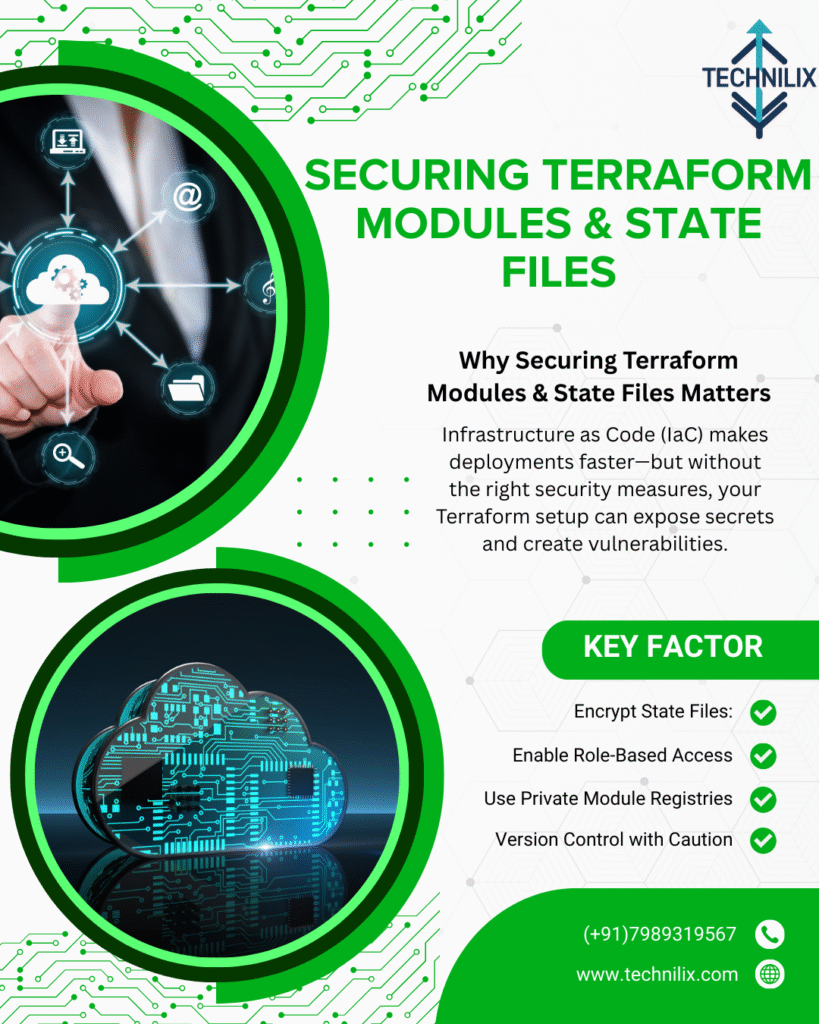Why Securing Terraform Modules & State Files Matters
Terraform’s declarative IaC accelerates cloud provisioning—but its state file is a treasure chest of secrets. If compromised, attackers can map your entire cloud environment.
Core Risks
- Secrets Exposure:
.tfstatemay contain plaintext credentials and tokens. - Privilege Escalation: Anyone with write access to state can manipulate resources.
- Compliance Breaches: GDPR, HIPAA, and SOC 2 violations from leaked PII or keys.
Essential Security Practices
- Remote, Encrypted State Storage: Use AWS S3 with SSE-KMS, Azure Blob with CMK, or GCS with CMEK. Enable DynamoDB or Cosmos DB state locking.
- Granular IAM & RBAC: Separate read/write permissions, enforce MFA, and least-privilege roles for state backends.
- Private Module Registries: Host internal modules in private repos or Terraform Cloud/Enterprise. Scan modules with tfsec or Checkov.
- Secrets Management: Never hard-code secrets. Integrate with HashiCorp Vault, AWS Secrets Manager, or Azure Key Vault.
- Version Control Hygiene: Add
.terraform*and*.tfstate*to.gitignore. Use commit hooks to block accidental pushes. - Continuous Security Scans: Add pipeline checks with Terrascan, OPA, or Sentinel and monitor drift continuously.
Join Realtime Program with handson to Business client projects. #Call on +917989319567 / whatsapp on https://wa.link/ntfq3m
—————————–
Regards,
Technilix.com
Division of MFH IT Solutions (GST ID: 37ABWFM7509H1ZL)
☎️ Contact Us https://lnkd.in/gEfhFidB
LinkedIn https://lnkd.in/ei75Ht8e
#Technilix #Terraform #DevSecOps #IaC #CloudSecurity #AWS #Azure #GCP #HashiCorp #InfrastructureAsCode #CyberSecurity
